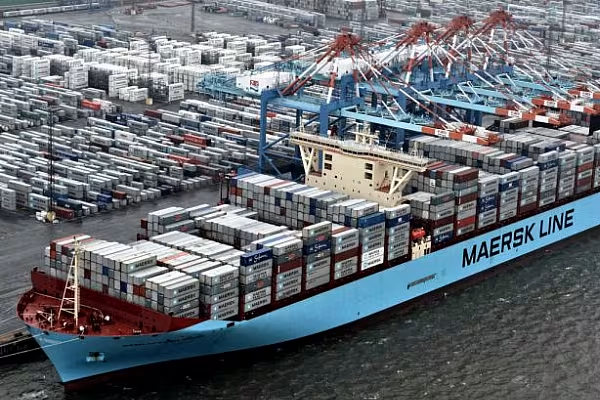A.P. Moller-Maersk A/S fell short of earnings expectations last year but promised its shareholders profit at the world’s biggest shipping company will grow as much as 43 percent in 2018.
Maersk opened about 5 percent lower in Copenhagen, making it the day’s worst performer on Denmark’s index of benchmark stocks. In a note to clients, Clarksons Platou said Maersk disappointed both on the results it delivered last year, and on its outlook.
“As always, management is usually conservative in their guidance at the start of the year given low visibility in the industry,” analysts Frode Morkedal and Herman Hildan said in the note.
Chief Executive Officer Soren Skou described last year as “unusual and eventful,” in a statement on Friday. But he assured investors that the company’s “vision of becoming the global integrator of container logistics, connecting and simplifying our customers’ supply chains, is taking shape.”
Maersk’s FY 2017 Numbers
Revenue was $30.9 billion Ebit reached $641 million vs. estimate of $1.03 billion. The underlying result was $356 million vs. estimate of $425.4 million.
Earnings before interest, tax, depreciation and amortization will be in the range of $4 billion to $5 billion in 2018, the company said on Friday. That compares with the $3.5 billion it booked in 2017. The company proposed a dividend of $24 a share.
Skou said 2017 was characterized by “strong underlying market conditions.” But the result was hurt in part after Maersk was hit by a cyberattack in June that mainly affected its Maersk Line unit. Weaker rates and increasing bunker costs, “especially in the fourth quarter,” also dragged down last year’s result, he said.
In an interview with Bloomberg Television’s Matt Miller and Guy Johnson, Skou said the global economic outlook was promising and indicated demand in the shipping freight industry will continue to improve. “On the whole we have a very positive view,” he said.
Maersk Line won market share in the last three months of the year, with volumes growing 3.6 percent. That’s more than the 3 percent growth in container shipping market overall. But costs rose 3.7 percent in the quarter, as Maersk absorbed the effect of higher prices for bunker fuel.
Skou told Bloomberg that capacity “will grow this year and the year after but in a manageable way” and that “in a broad sense, fundamentals for containers are quite good.”
Maersk shares were down 3.7 percent as of 9:45 a.m. in Copenhagen. That brought the stock’s 2018 drop to 8 percent, following a 3.8 percent decline in 2017.
Structure Split
Maersk is working toward completing an historic split of its conglomerate structure, as it sheds its energy units to focus on transport. The company has found new owners for two of the four units, selling its oil business and its tanker operations for almost $10 billion combined. Management still needs to offload its drilling arm and a supply service unit. Maersk has given itself an end-of-2018 deadline to sort out these deals.
Skou told Bloomberg that the recovery in oil prices will “be good” and probably make it easier for Maersk to find new owners for its two remaining energy units.
News by Bloomberg, edited by ESM. Click subscribe to sign up to ESM: The European Supermarket Magazine.














